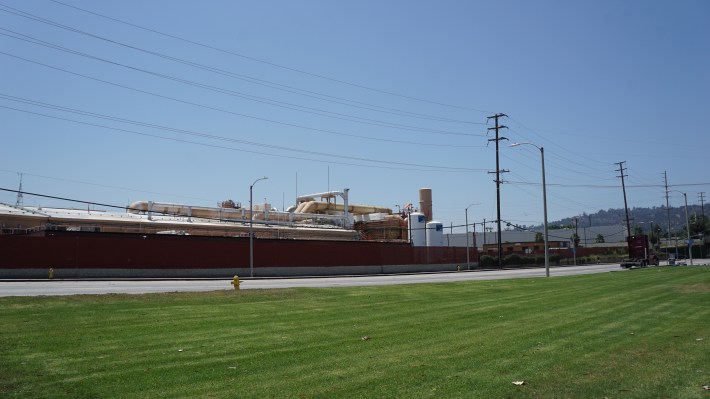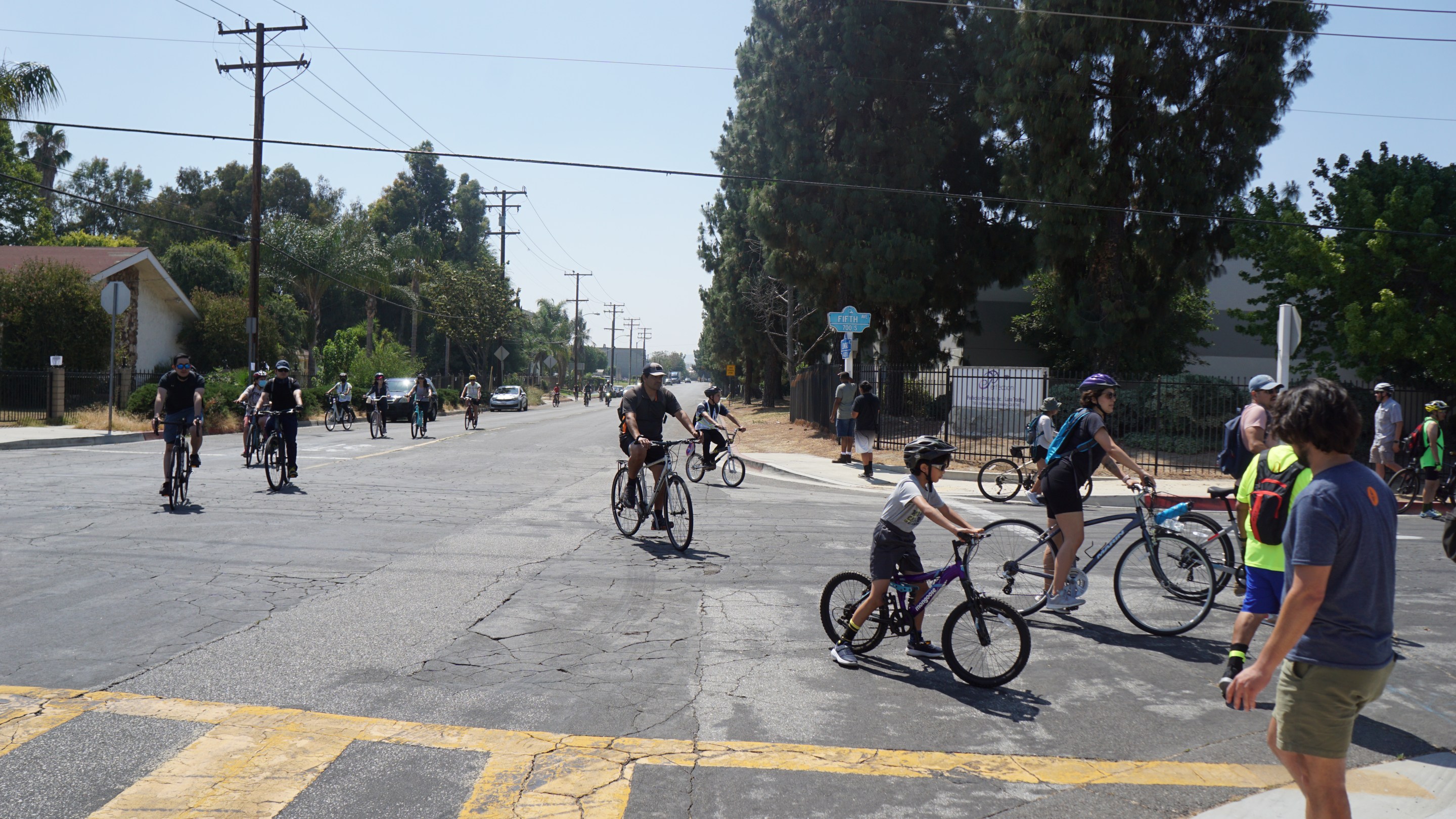In the southern SGV’s unincorporated equestrian neighborhood, Avocado Heights, it’s normal to see parents take their kids to school on horseback, says local activist Samuel Brown-Vazquez. “We were very happy to be a part of this very tight knit community that really celebrates an agrarian past, and a lot of cultures and traditions from Mexico,” he says, having moved into the area after growing up nearby in Hacienda Heights.
He’s been worried about the air quality though. “We're constantly exposed to particulate matter.” Brown-Vazquez is a member of the environmental justice group Avocado Heights Vaqueros. He’s one of the organizers of a toxic tour bike ride over the past weekend that weaved in and out of Avocado Heights and City of Industry. Its ultimate stop was the lead battery recycling plant Ecobat (often called by its former name, Quemetco).
The ride was guided by Active SGV. The mobility non-profit’s executive director David Diaz told riders before they took off from San Angelo Park that Avocado Heights is in the 99th percentile of the CalEnviroScreen, a mapping tool of California communities threatened by pollution. 100 is the worst score an area can get. Diaz said nearby residents are at higher risk for asthma, diabetes, and long-term chronic disease.

Across the street from Ecobat/Quemetco’s plant on Seventh Avenue in Industry, Brown-Vazquez stood atop a stairwell and told onlookers that its operators are seeking a modification of their permit from the South Coast Air Quality Management District to expand from processing 600 tons of battery waste a day to 750 tons. Full disclosure: our reporter commented against the capacity upgrade in an AQMD public forum.
“In 2008 Quemetco installed a filter inside of one of their air emission stacks. And that filter, according to them, according to data we've seen from the AQMD, does suggest that lead emissions are down,” said Brown-Vazquez. “So Quemetco has rebranded themselves as Ecobat and they say they're the cleanest lead battery recycling facility in the world. The problem is that when they're recycling the lead and processing the hazardous waste, we're not just dealing with lead emissions. We're dealing with arsenic… benzene… 1,3-butadiene… zinc… manganese… cadmium… antimony. We're dealing with up to 30 metals, many of them carcinogens that are emitted as part of their facilities.”
Ecobat/Quemetco has operated on the corner of Seventh Avenue and Salt Lake Avenue since 1959. Brown-Vazquez’s sister Elena said it’s had a lasting impact on its neighbors. “We've seen high rates of cancer or other respiratory diseases or illnesses in our neighborhoods,” she told the crowd. “I myself, I had blood cancer five, six years ago. Luckily, I'm a survivor, but so many people don't get to live to tell their stories.”
Elena Brown-Vazquez said that the Avocado Heights Vaqueros are not satisfied with past soil sampling done by Ecobat/Quemetco and the Vaqueros will soon work with the Clean Air Coalition to conduct their own soil samples with assistance from USC’s Department of Environmental Health.
“There has been in previous samples, they have found some lead, and they'll say, ‘Well, it's very small, you know,’ but we know any exposure to lead is not unacceptable,” she said. “You know, we don't want them to expand, but we definitely also eventually want to shut them down. And after that work on remediation.”
Sam Brown-Vazquez finished the talk on Seventh Avenue saying, “For the longest time, this was considered an undesirable place to live. And we're grateful that it was considered undesirable, because it allowed us working class folks to come into this community and make it something that we feel welcome in… But just because we're unincorporated doesn't mean that we're not going to take issues of land use planning into very serious consideration,” he said, referring to sprawling warehouses encroaching on Avocado Heights’ equestrian-zoned land. “We're going to fight them on CEQA and we're gonna fight them with community pressure, we're gonna say, ‘This is our community. You got to learn about our community before you try to change it.’”
SGV Connect is supported by Foothill Transit, offering car-free travel throughout the San Gabriel Valley with connections to the new Gold Line Stations across the Foothills and Commuter Express lines traveling into the heart of downtown L.A. To plan your trip, visit Foothill Transit. “Foothill Transit. Going Good Places.”
Sign-up for our SGV Connect Newsletter, coming to your inbox on Fridays!






